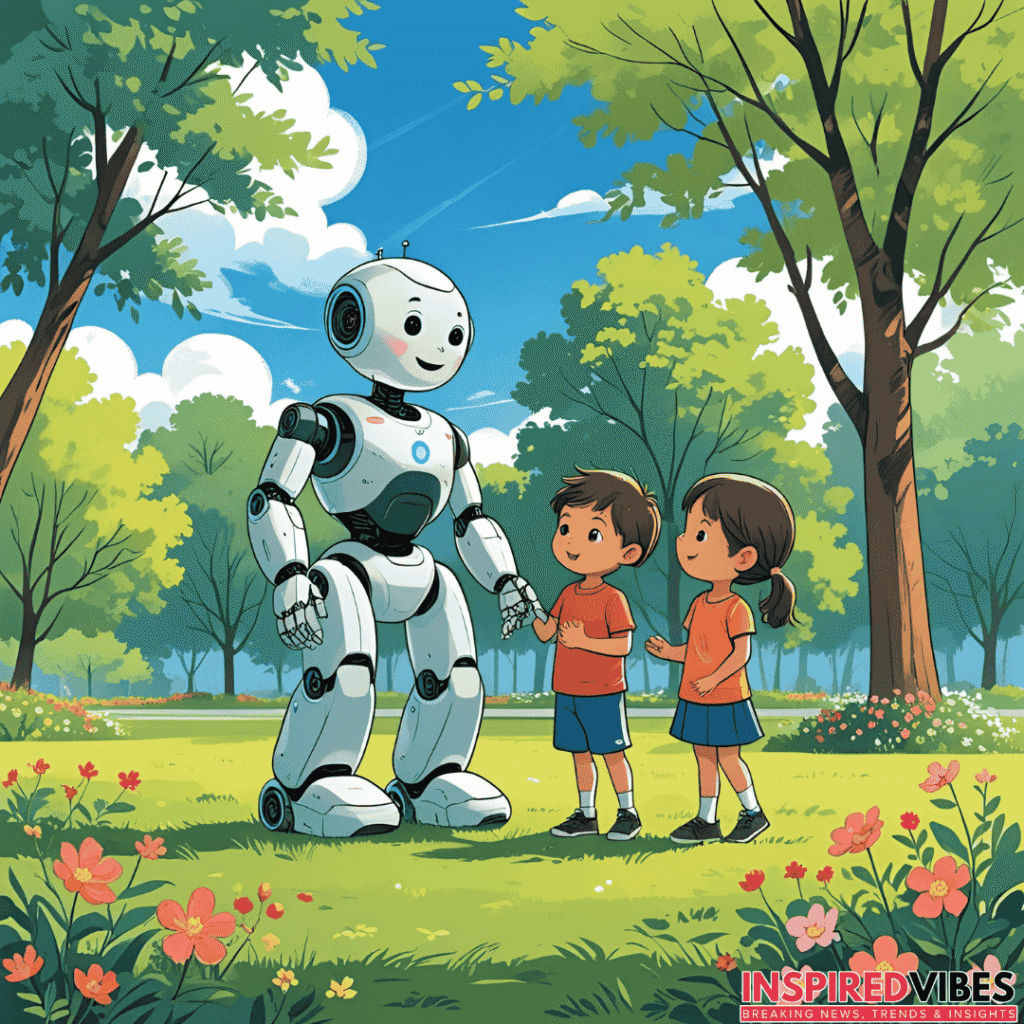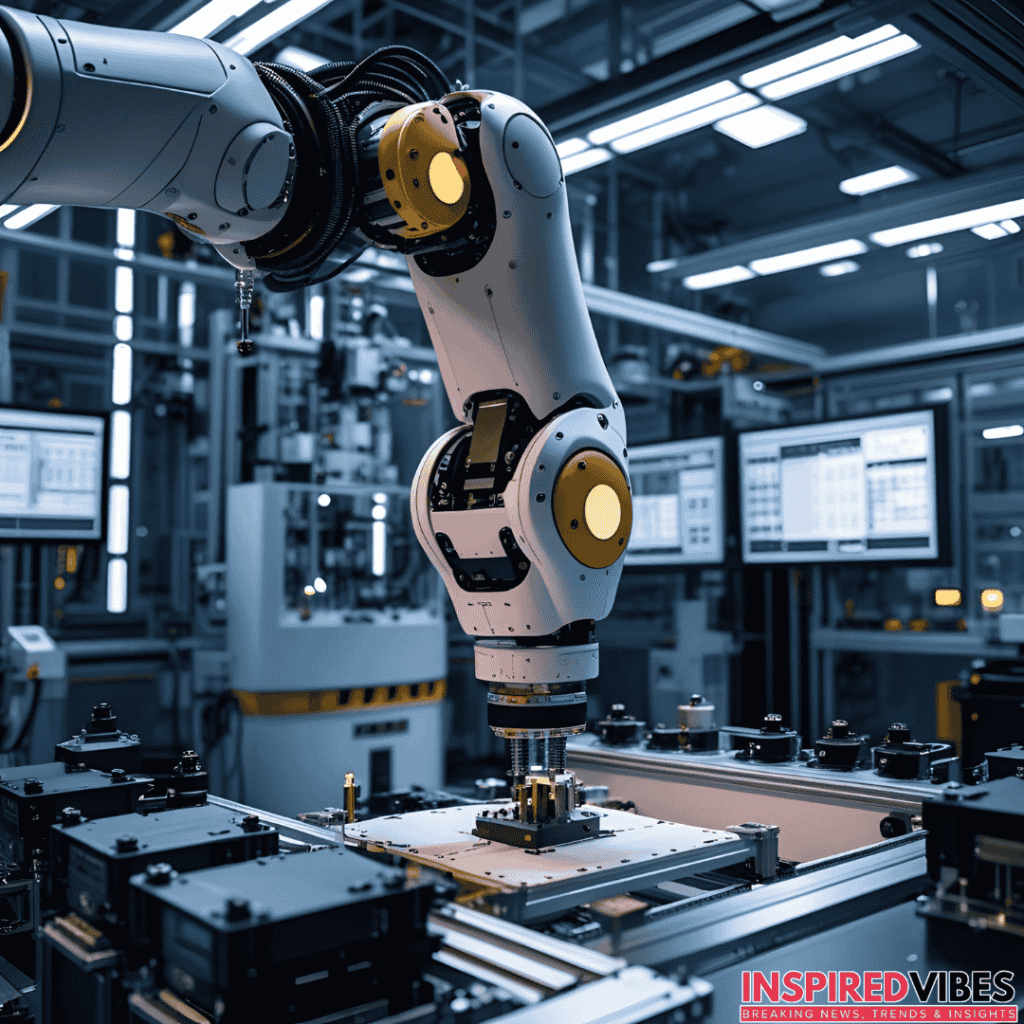Introduction: What Is a Lot Artificial Intelligence?
The era of artificial intelligence (AI) is no longer something reserved for some day in the future—it is here, and it is transforming industries on a global scale. With applications ranging from healthcare to entertainment, courtesy of breakthroughs in AI systems, the game has just changed – with systems now more intelligent, efficient and accessible than ever. But when we say “a lot artificial intelligence,” we mean the widespread and rapidly increasing deployment of AI tools across our lives, from our personal gadgets to our public institutions.
This transition is defined by AI seeping into virtually every corner of tech. Whether it’s customer service automation, insight discovery or even self-driving cars, the term “lot artificial intelligence” calls out the mainstreaming and maturation of AI technologies. We are rapidly transitioning from the era of experimental AI to one of cross-cutting, general purpose AI, and it’s redefining the way businesses, governments, and individuals engage with the digital world.
The Rapid Growth of Artificial Intelligence Technology
AI has entered the mainstream over the past 10 years. The ability to use AI in ways we could only imagine with ML, neural networks, and deep learning algorithms has been realized by companies. As A.I. advances, we’re seeing it affect a wide variety of A.I. applications in terms of automation, data processing and even a slee of creative projects as well.
AI has helped in business intelligence, predictive analytics, and better customer experiences. The age of chatbots, virtual assistants and AI-driven recommendation systems shows us how AI can engineer and optimize processes previously based on human intervention. Companies that embrace artificial intelligence across a bevy of processes can save time and money, increase workplace efficiency and, in many cases, generate entirely new products, services and business models.
Artificial intelligence has gotten better and better too. New algorithms are being developed for a variety of difficult problems, including medical, financial, educational and industrial, with many new challenges from applications at the control, circuit and communication. In that sense, there’s been a whole lot more AI in the air today than just a few short years ago, and more and more sectors have been running afoul of AI — even in niche applications.
AI and Automation: Changing the Workforce
One of the biggest impacts of so much artificial intelligence is felt at work. Through AI, automation is changing up the game when it comes to what people’s jobs look like. Mundane chores, including data entry, analysis and even customer service, are increasingly being done by machines, making companies more efficient.
Though such a trend causes job displacement concerns, it also provides opportunities for the labor force. As AI continues to advance, much of what AI is bringing into being is entirely new industries and jobs, and nowhere is this growth more evident than in the realm of AI development, data analysis and machine learning. These positions call for specialized skills and offer some of the most competitive salaries in today’s job market.
But for AI to be universally put to use, the workforce will also have to evolve. Skill development and re-skilling are an absolute necessity for an individual to remain relevant in a highly dynamic job market. Much of artificial intelligence is not just about replacing human labor — it is about augmenting human ability. Professionals can then collaborate with AI systems, benefiting from their power, which can create more innovation and cross-industry cooperation.

The Ethical Implications of a Lot Artificial Intelligence
With the rapid emergence of AI across all areas of our lives, so too is the growing interest in the ethical implications for its use. As much artificial intelligence is deployed to make decisions — from hiring to criminal justice — it is important to confront concerns about bias, accountability and transparency. A.I. algorithms are programmed to learn from data, but if that data is flawed or biased in some way, the A.I. can make fair those biases in its decision-making.
Specifically, AI systems that are used in hiring, for instance, could end up privileging one type of group over another, reproducing the biases that are inherent in the historical data. This becomes an issue regarding fairness, equity and how AI could perpetuate societal injustices. Much of artificial intelligence demands a rethinking of how we gather, store and use data so that the technology can be as unbiased and as inclusive as possible.
The opaque process through which AI arrives at the caption also calls into question accountability. If an AI system errs, who is to blame? Is it the developer, the business or the robot instead? These are questions that will need to be answered as we see more and more artificial intelligence introduced into our daily lives. Establishing ethical rules and regulation will help minimize the risks and ensure the AI works for the social good.
The Future of a Lot Artificial Intelligence in Everyday Life
Looking forward, it’s obvious there’s going to be a lot of artificial intelligence in technology’s future. From how we interact with machines to the way businesses operate, AI’s footprint is vast and expanding. That’s good news for customers, who will find greater convenience, personalization and efficiency. Virtual assistants will grow smarter, and smart homes will become more intuitive, even learning from you to anticipate your needs.
In the business world, AI will keep growing. Much of that artificial intelligence will continue to drive innovation in areas like finance, where AI-enhanced tools already are reshaping the way that trading is undertaken, risks are assessed and customers are courted. In healthcare, robots are also shaking things up, with robots being used in more personalized medicine treatment and in surgical procedures. The possibilities for AI to transform industries for the better are almost endless, and we’ve barely begun to scratch the surface of what’s possible.
Now that AI technology is progressing rapidly, we need to consider how we should manage and govern these advances. Governments, companies, civil society and individuals have to do something together to guarantee that the lot A.I. volume growth is done in a responsible manner which takes into consideration security, privacy and fairness. The potential of AI is unbelievably exciting, but it’s also a well of responsibility.

FAQs About a Lot Artificial Intelligence
Q. In tech, what does “a lot artificial intelligence” actually mean?
A. “Much artificial intelligence” is the use of AI technology in different sectors. It represents the explosion of AI in virtually every domain, from robotics to predictive analytics, as systems become smarter and more efficient.
Q. What effect does a abundance of artificial intelligence have on the workforce?
A. Automation, powered by AI, is replacing the mundane, driving productivity and reducing human error. While certain jobs will be eliminated, new positions are cropping up in AI programming, data science, and machine learning. The workforce needs to be upskilled in order to stay relevant and take advantage of these opportunities.
Q. What’s wrong with an abundant amount of artificial intelligence?
A. Major ethical issues involve AI biases, transparency and accountability. When AI systems are trained on imperfect or prejudiced data, they can be biased, too. It is important to build fair and transparent algorithms to avoid such problems and to make sure AI benefits all of us alike.
Q. How is plenty artificial intelligence changing the way business gets done?
A. Artificial intelligence allows companies to streamline operations, cut costs and improve customer interactions. It enables predictive analytics, customer service automation and smoother supply chains, enabling businesses to operate better and scale quicker.
Q. What is everything lot artificial intelligence that will change our daily lives?
A. In the coming years, AI will be more deeply infused in our lives, through smarter personal assistants and more instinctive smarthomes. AI will be used to introduce new consumer and enterprise products in health, finance, entertainment that deliver more personalized experiences and greater efficiency across a variety of industries. But with the spread of A.I., questions around ethics will continue to be raised.
Conclusion: The Unstoppable Rise of a Lot Artificial Intelligence
Much artificial intelligence is changing how we create and live. From business productivity to automation of the jobs — AI is spreading its wings and transforming the various industries while creating new opportunities for businesses and individuals alike. But with this advancement, responsibility to practice it dutifully. Ethical issues about bias, transparency, and accountability should be considered in order for AI to benefit the society at large. In the era of AI, prudent adoption of the technology opportunities combined with appropriate protections for the risks is what’s going to separate successful integration of AI into our lives from the rest. The future of much artificial intelligence has the potential to be limitless, but it’s up to us to shape it in a way that benefits everyone equitably.
lot artificial intelligenceFor More Updates Visit: Inspiredvibes









